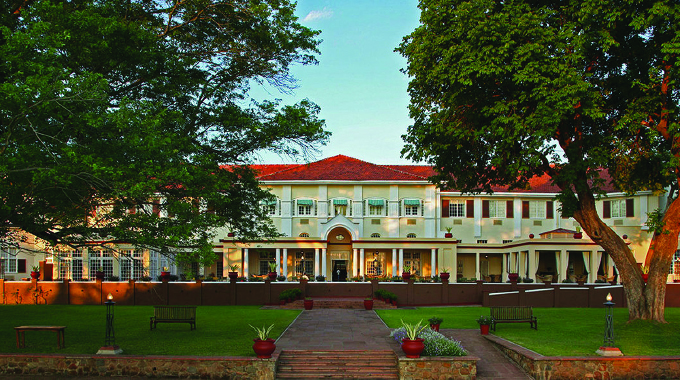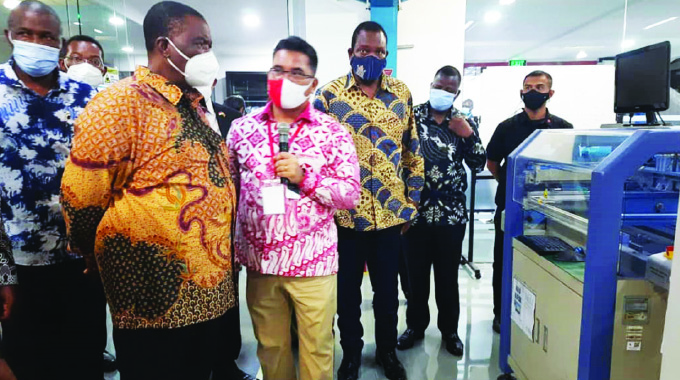EDITORIAL COMMENT : President at Davos with achievements under his belt

THE annual meeting of the World Economic Forum in Davos, Switzerland, is a private, but highly important get-together where a good cross section of present and retired statesmen, business leaders, top bankers, economists and others meet to try and map trends, pressure points, successes and failures.
President Mnangagwa is attending for the second time this year. And his invitation is more important than his first. In 2018, he was largely on the guest list because he was not his predecessor and although he had yet to obtain his own mandate in a Presidential election, he had already made it clear he was opening up Zimbabwe, although he had been in the top job for just two months.
He was invited the next year, but had to excuse himself because of trouble back home, basically a looting spree triggered by elements that wanted to use the necessary end of subsidies on fuel as an excuse for violent action.
The timing by the organisers was partly to give Zimbabwe and its President a very bad press at Davos. Both the need to manage the response, and the need to avoid his drive for investment being side-tracked by that bad press meant he gave it a miss.
This year’s invitation is different. The President has not been invited because of what he has said or the hopes that he may fulfil promises. He has been invited because of what he has done and what he is doing.
He has successfully presided over major economic reforms; he has changed his investment policies and most of the associated laws; his country’s economy is growing fast, and is one of the fastest growing in Africa, if not the fastest growing; infrastructure is being fixed and expanded and he managed the Covid-19 outbreaks in a way that produced very low death rates, permanent improvements in health services and social security, yet continued economic growth with the budget remaining balanced.
Besides the economic and health achievements, the Government has been fulfilling promises on opening up Zimbabwean society. Major media reforms have made it much easier for journalists to operate, and have opened the airwaves.
A highly successful mini-general election was held combining all the council and Parliamentary by-elections postponed for two years, with open campaigning and negligible violence. And critically, total acceptance of the results by all.
All in all President Mnangagwa can contribute to discussion since the problems facing Zimbabwe are far from unique, so there will be interest in how he pulled it off and interest in the sort of problems that prove harder to sort out than the theoretical economists imagine.
The text books are not always useful. Having the practical, hands-on person at the discussions is a plus.
So this time President Mnangagwa is going to Davos with some solid achievements under his belt and those built on actions, rather than words and rhetoric.
In many ways the invitation this year is acknowledgement of his successes and his actions, including the engagement and re-engagement policies pursued by his Government.
The World Economic Forum is a private body, not one owned or driven by Governments, but it is exceptionally influential and interacts with a large number of official bodies and has no problem assembling the “A list” for its annual meetings.
So the invitation is an acknowledgement that Zimbabwe is an ordinary country but one doing reasonably well in climbing out of poverty and, according to the World Bank and the International Monetary Fund, on the right path, even if they want some tweaking.
The President sees the forum as an ideal opportunity to pursue Zimbabwe’s investment drive. Again the actions will help immensely.
Zimbabwe has proved that the pro-business policy was backed by the required action, with those who have been investing already having made approving interventions at other forums.
Among these are Swiss investors, and the Swiss have been among the leaders in entering Zimbabwe, despite the small size of their country.
But then the Swiss are also renowned for being exceptionally practical business people, able to separate the talk from the action, and the sort of people who do not cast their bread upon the waters unless the tide is coming in.
The fact that they have responded to the practical pro-investment climate will be a major plus when others are approached at the forum. Zimbabwe has no problems with other potential investors grilling the President, or for that matter having a quiet lunch with their friend from a major Swiss investor to get the low down before they go home.
Our reputation should now be good. And when the President makes his pitch he can name names and list those who have or are responding. Again this is important. Success drives success and as the President keeps stressing, look at what Zimbabwe has done and what Zimbabwe is doing.
We are doers, not talkers in this enlightened age, starting with the President who has a strong policy of reserving most of his fairly brief speeches for when he opens something or commissions something or when he announces the measures needed to solve an immediate problem.
The competition for investment is tight. Most countries want investment.
The big winners will be those who can deliver, and preferably are already delivering.
And here Zimbabwe has a good case because for the past four years, since in fact the President was last at Davos, we have been turning our promises and our proposals into policies and far more importantly implementing those policies and turning them into action.
We are not perfect, and all sorts of additional pressures arise starting with the global outbreak of Covid-19.
But the fact that we largely funded ourselves in our highly successful vaccination drive and put in a basket of health policies that brought our population through with very modest death tolls shows that we can cope.
We even leveraged on the pandemic to massively upgrade our public health system, acknowledged with the recent US$200 million health loan from Britain, hardly our closest friend but a country willing to respond to our successes.
It is that string of action, largely successful despite the pressures, over the last four years that make this trip to Davos so different for President Mnangagwa.
He is not going as the “new guy” but as someone who has led his own teams and the nation in building, one step at a time, something a lot more solid.











Comments